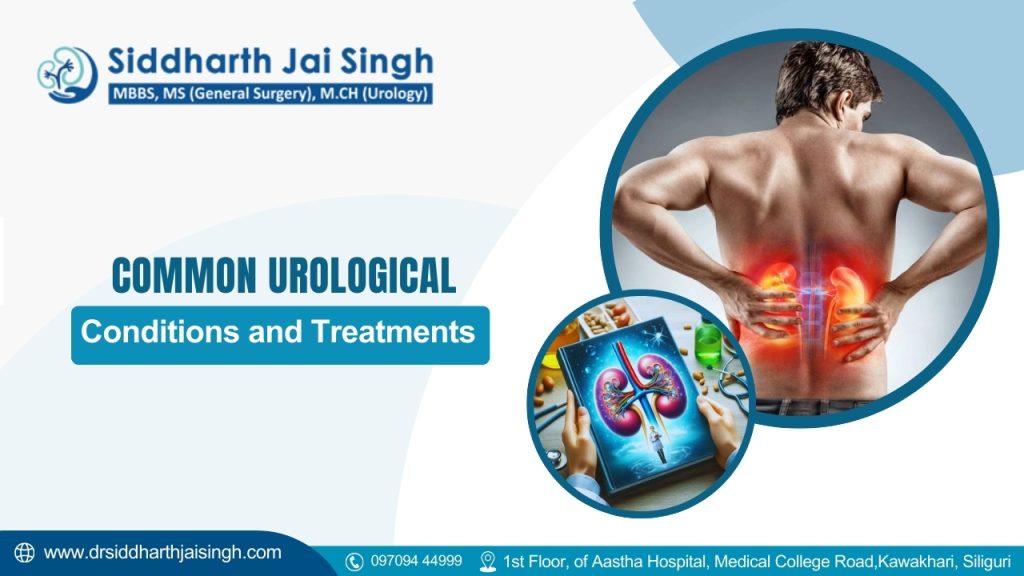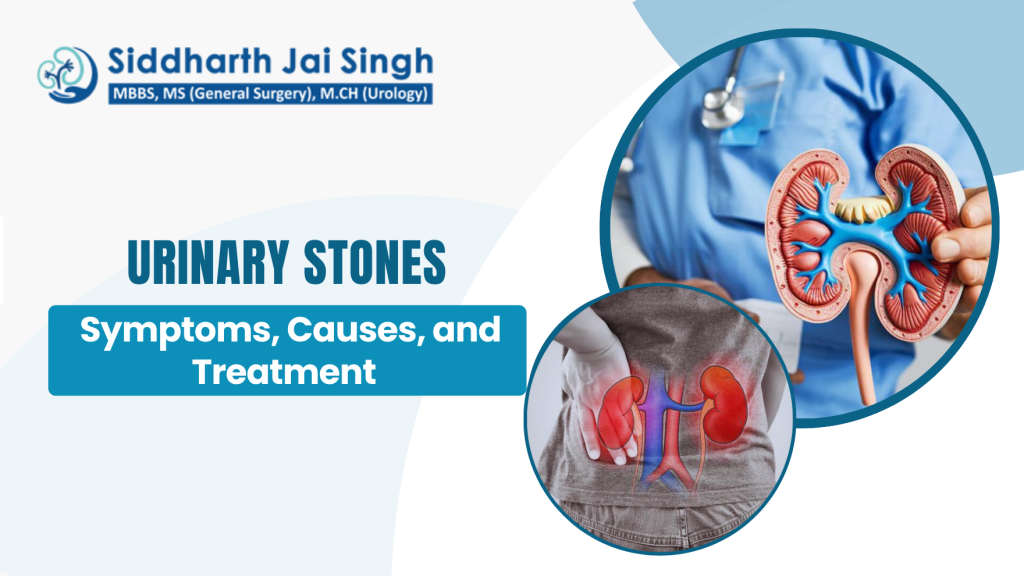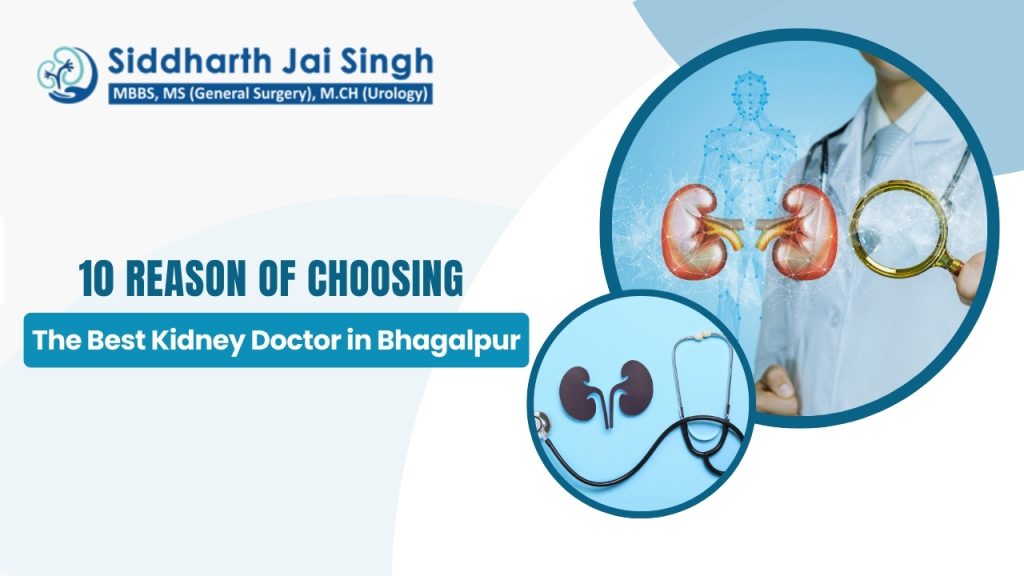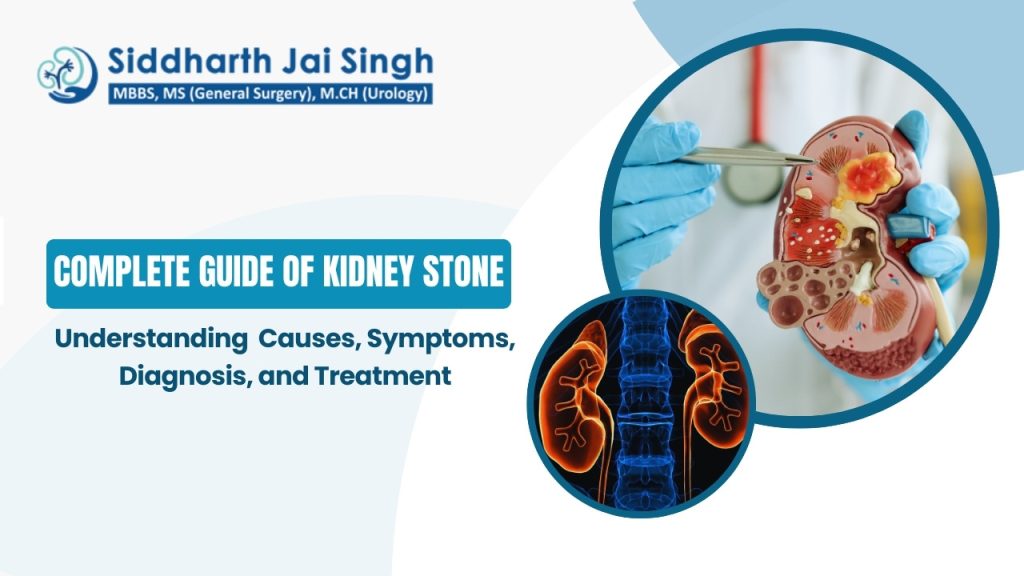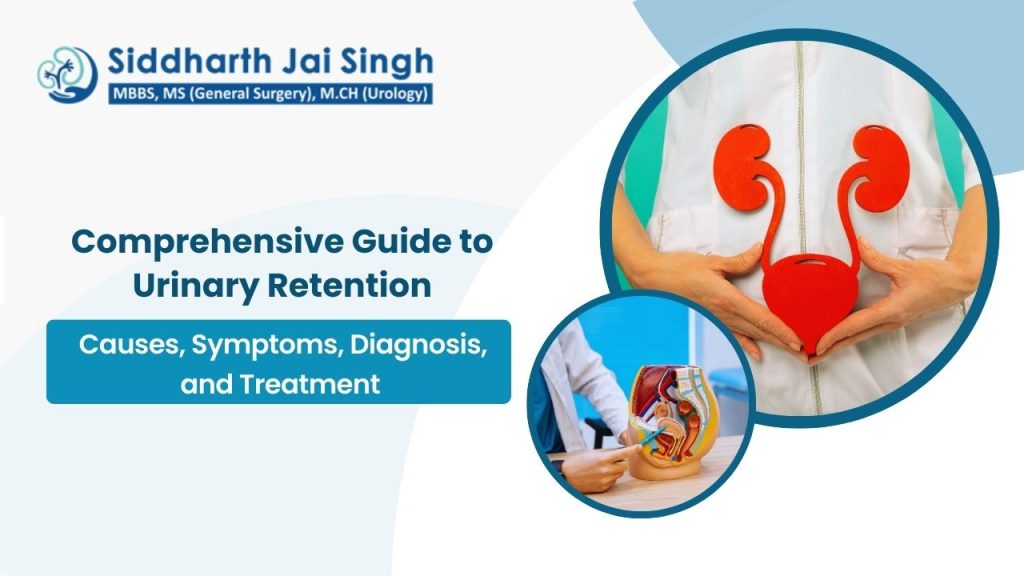Male Infertility: Causes, Diagnosis & Treatment
Infertility is a common issue for many couples, and male infertility is responsible for around 40-50% of these cases. The journey to becoming parents can be exciting but also challenging for some. Male infertility can be a sensitive subject, but understanding its causes, diagnosis, and available treatments is crucial. This article provides clear, helpful information about male infertility. If you are facing fertility issues, consulting a professional for the right diagnosis and treatment is important. If you need expert care, you can visit Dr. Siddharth Jai Singh, a consultant urologist, andrologist, laparoscopic, and renal transplant surgeon, currently practicing at Aastha Hospital in Siliguri and Healing Touch Hospital in Bhagalpur. What is Male Infertility? Male infertility refers to a male’s inability to cause pregnancy in a fertile female due to problems with sperm production, function, or delivery. This issue can vary, from low sperm count to sperm not moving properly or being in the wrong shape, all of which can affect the chances of conception. While male infertility can happen at any age, it is more common as men get older. But age is not the only factor, as there are many other reasons why male infertility can occur. Causes of Male Infertility There are many reasons behind male infertility, and sometimes multiple factors contribute to the problem. Some of the main causes include: 1. Low Sperm Count (Oligospermia) Low sperm count is one of the most common causes. This happens when there are fewer sperm in the semen than usual. A healthy sperm count should be above 15 million sperm per milliliter of semen. A low sperm count decreases the chance of pregnancy. 2. Poor Sperm Motility (Asthenozoospermia) Sperm motility refers to how well sperm move. If sperm cannot swim properly, they may not be able to reach the egg for fertilization. Poor motility can cause infertility. 3. Abnormal Sperm Shape (Teratozoospermia) Sperm should have a healthy shape to swim toward the egg. If sperm are misshapen, they may not be able to fertilize an egg, leading to infertility. 4. Blockages in the Reproductive System Blockages in the male reproductive system, such as varicocele (swollen veins in the scrotum), infections, or past surgeries, can prevent sperm from being released during ejaculation, affecting fertility. 5. Hormonal Imbalances Hormones play a big role in sperm production. If there is a hormonal imbalance, like low testosterone, sperm production can be affected. Issues such as obesity, diabetes, or thyroid problems can also lead to hormonal imbalances that impact fertility. 6. Genetic Issues Genetic conditions can also cause male infertility. For example, Klinefelter syndrome or cystic fibrosis can affect sperm production. Genetic testing may be necessary to diagnose these conditions. 7. Lifestyle Factors Lifestyle choices play an important role in fertility. Smoking, excessive drinking, drug use, or poor diet can harm sperm health. Stress, lack of exercise, and exposure to chemicals or toxins also affect fertility. 8. Environmental Factors High temperatures, chemicals, and radiation can damage sperm. Men who are exposed to these things at work or in their environment are at a higher risk for infertility. Wearing tight clothing, using hot tubs, or long exposure to heat can also lower sperm count. 9. Erectile Dysfunction Although erectile dysfunction (ED) does not directly affect sperm quality, it can impact fertility because it may prevent ejaculation during sex. This can make it harder to conceive. Diagnosing Male Infertility If a couple is having difficulty getting pregnant, both partners need to be tested. Male infertility can be diagnosed through a few different methods: 1. Semen Analysis A semen analysis is the most common test to check for male infertility. It evaluates sperm count, movement, and shape. If the sperm count is low, it may indicate infertility. Several semen analyses may be done to get accurate results. 2. Hormonal Testing Blood tests can check for hormonal problems. These tests evaluate testosterone, follicle-stimulating hormone (FSH), and luteinizing hormone (LH). Abnormal hormone levels could indicate issues with sperm production. 3. Scrotal Ultrasound A scrotal ultrasound is used to check for conditions like varicoceles, cysts, or other problems in the scrotum or testicles that might affect sperm production. 4. Genetic Testing If genetic issues are suspected, testing can identify problems like Klinefelter syndrome or other chromosomal disorders that could affect fertility. 5. Testicular Biopsy In some cases, a testicular biopsy may be done to examine sperm production directly. This involves taking a small sample from the testicles for testing. 6. Physical Examination A doctor may perform a physical exam to look for abnormalities in the reproductive system, such as varicoceles or blockages that could affect sperm production. Treatments for Male Infertility The good news is that many causes of male infertility are treatable. Depending on the problem, there are various treatment options available: 1. Medications If a hormonal imbalance is identified, medications can help regulate hormone levels and improve sperm production. For example, drugs like clomiphene citrate may be used to boost sperm production. If there’s an infection, antibiotics may be prescribed. 2. Surgery Surgery may be needed to treat problems like varicoceles or blockages in the reproductive system. In many cases, surgery can improve sperm quality and increase the chances of pregnancy. 3. Assisted Reproductive Technologies (ART) If other treatments don’t work, assisted reproductive technologies like intrauterine insemination (IUI) or in vitro fertilization (IVF) may be recommended. In IVF, sperm and eggs are combined in a lab, and the embryo is then implanted into the uterus. 4. Lifestyle Changes Adopting a healthier lifestyle can significantly improve sperm quality. Quitting smoking, reducing alcohol intake, exercising regularly, and eating a balanced diet all contribute to better fertility. Reducing stress and avoiding excessive heat to the genital area can also help. 5. Sperm Retrieval Techniques If sperm is not present in the semen, surgical methods like testicular sperm aspiration (TESA) or microdissection testicular sperm extraction (mTESE) can be used to collect sperm directly from the testicles. Male infertility is a complex issue, but many cases can be treated. Understanding the causes
Male Infertility: Causes, Diagnosis & Treatment Read More »




